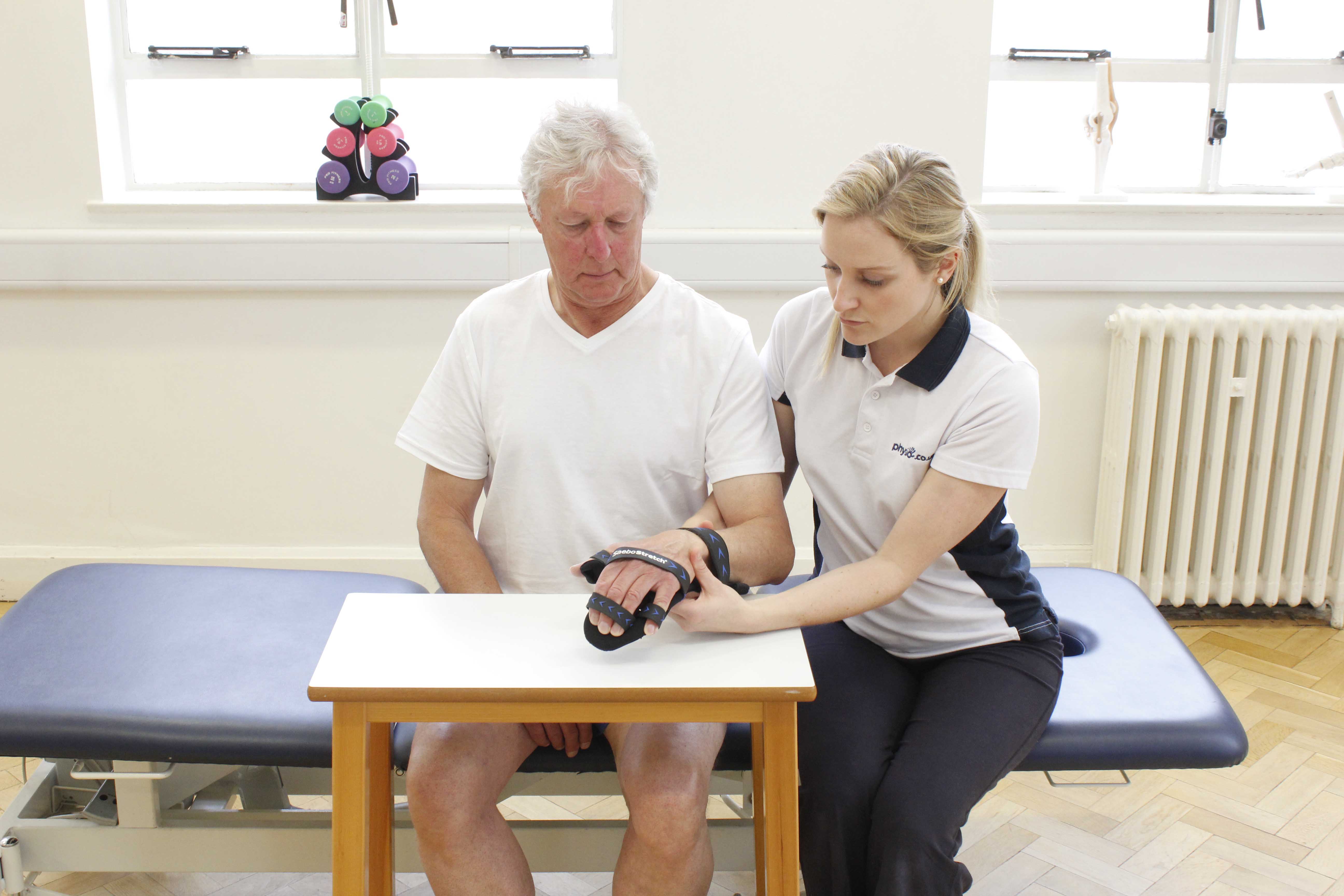 Above: Physiotherapist fitting a wrist splint to prevent muscle and soft tissue shortening in an imobile
Above: Physiotherapist fitting a wrist splint to prevent muscle and soft tissue shortening in an imobile Physiotherapy treatment for paralysis will depend on:
- Whether the problem is central or peripheral
- The cause of the paralysis
- The extent of the damage
- The likely prognosis
- Other symptoms that are present
Physiotherapy for total paralysis
Physiotherapy for people with total paralysis of the lower limbs will concentrate on maintaining tissue capability, maximising physical potential and promoting independence with everyday functional activities. Physiotherapy treatment may include:
- Increasing muscle strength and stamina in the upper limbs and trunk to enhance independence with functional tasks and transfers.
- Muscle stretching to maintain muscle and tissue length and range of movement below the level of injury in the spine. This will also help to reduce pain and muscle spasms.
- Correcting and varying different postures to prevent soft tissue shortening and pressure sores
- Regular standing to weight bear which is good for the bones and increases circulation to the internal organs
- Teaching wheel chair skills which include pushing and turning the chair, operating the brakes and removing the footplates and arm
- Teaching transfers (getting in and out of a wheelchair, bed, shower/bath, on and off the toilet)
- Advice on orthotic devices
- Hydrotherapy to lengthen tight muscles and improve muscle strength above the level of injury
Physiotherapy for partial paralysis
People with partial paralysis will present in different ways depending on the location of damage to the spine. Physiotherapy for people with partial paralysis will focus on maximising mobility and independence with everyday tasks. Physiotherapy treatment may include:
- Exercises to strengthen weak muscles in the arms legs and trunk
- Muscle stretching to reduce pain and stiffness and to prevent soft tissue contractures
- Gait retraining with the use of mobility aids such as crutches or walking frame if necessary
- Exercises to improve balance and coordination
- Enhancing ability with everyday activities and transfers including bed mobility and sit to stand to promote independence
- Exercises to increase stamina and reduce fatigue
- Advice on positioning in lying sitting and standing to increase comfort
- Advice on orthotic devices and walking aids
- Hydrotherapy to relieve stiff muscles, strengthen weak muscles and maximise mobility
If you would like more information on physiotherapy, or to book an appointment please call 0330 088 7800.

 0330 088 7800
0330 088 7800


































